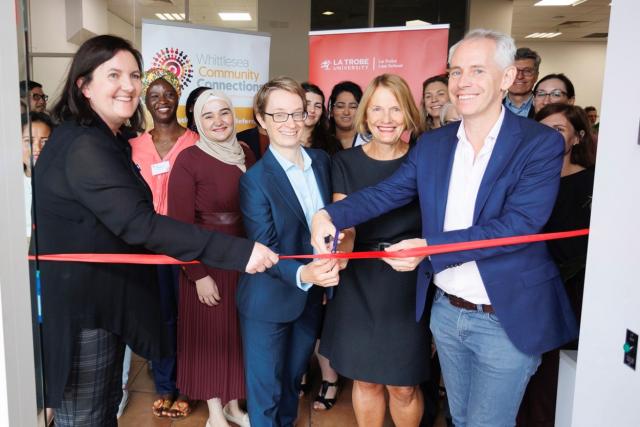Tara Murray
A new partnership between La Trobe University and Whittlesea Community Connections has resulted in the La Trobe Law clinic being launched in Whittlesea.
The clinic was officially launched late last month and is part of Whittlesea Community Connections’ new Social Justice Project.
The clinic started operating in July and will offer placements to 200 La Trobe law, criminology, social work, and information technology students.
At the clinic, students work in teams of two to provide legal services across five areas of law. Their work is supervised by an in-house lawyer.
La Trobe Law School Dean Professor Fiona Kelly said offering a diverse range of clinical opportunities to students ensured La Trobe graduates entered the job market with strong practical legal skills and the confidence that comes from managing a legal file and interacting with clients.
“Entering the employment market with practical experience is becoming increasingly important to securing a graduate law position,” Professor Kelly said.
“The La Trobe Law Clinic gives students the opportunity to apply their legal knowledge and interact directly with clients, building a skillset needed for legal practice. It also builds a culture of service, where students provide much-needed legal services to community members who may not otherwise be able to afford a lawyer.”
Sarah Klonis has been on placement at the law clinic.
She said it had been a really good experience.
“It’s my placement within my degree, so it has felt nice to put what we’ve learned in class into practice,” she said. “I’m from the Whittlesea township and it’s nice as I feel like helping the community that I live in.”
Ms Klonis has been working with Kildonan Uniting Care focusing on family violence and helping survivors who have received funds due to their abusers.
She said it was nice that people in the local area has somewhere to go.
“People in the local council area have some place t come to and not be judged about what they are going through.
“It’s a free service and they don’t have to be worried about having to pay to get help.”
Ms Klonis said she was hopeful in the future that people will be able to turn up without having to be referred.







